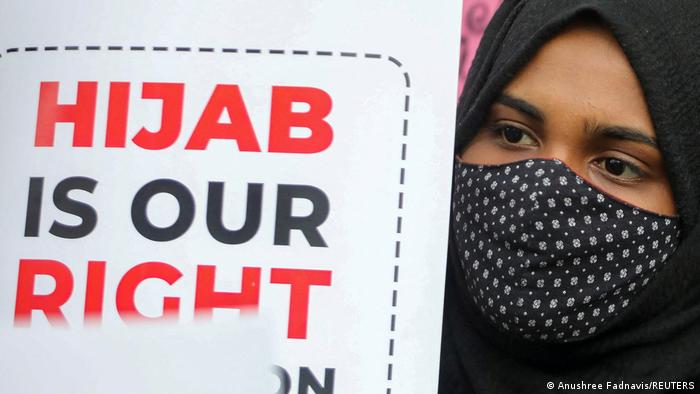Like their counterparts around the world, Muslim women in Nigeria recently marked the 10th annual World Hijab Day (WHD) with public lectures. The WHD was founded in 2013 by a Bangladeshi/American woman, Nazma Khan, and is marked on February 1, every year, to educate and raise awareness on the use of hijab by Muslim women. This year’s event had ‘Hijab is Our Crown, Not a Crime’ as its theme. Speaking through Hajiya Sidikat Shomope at a public lecture to mark the 2022 WHD at the National Mosque in Abuja, Nigeria’s Minister of Education, Malam Adamu Adamu, said Nigeria’s constitution allows Muslim women to wear hijab in line with the teachings of their faith.
Hijab is the dress-code prescribed for Muslim women when outside of their family homes. The reasons for which Muslim women wear hijab as instructed in the Qur’an include that they should not display their appearance (beauty) except that which is already apparent such as their face, hands up to wrist, and feet. Preventing the hair on the head from showing is another deliberate object for wearing hijab. Qur’an 33:59 specifically commands Muslim women to wear outer garments when they go out, so that they are not harassed. Hijab distinguishes a Muslim woman from those of the pre-Islamic era, affirms her religious and cultural identity, and is a source of protection for her chastity.
The controversy over hijab has been from both non-Muslim and Muslim backgrounds. The violence that broke out penultimate week at the Oyun Baptist High School in Kwara State, is a resonance of the decades-old controversy over the use of hijab by female Muslims in Nigeria.
In 2004, France banned the use of “clothes through which students conspicuously display their religious affiliation” in schools. France became the first European country to ban the full-face veil in public places; followed by Belgium, Latvia, Bulgaria, Austria, Denmark and some regions of Switzerland in the following years. At the same time, however, the use of hijab by Muslim women is allowed in many other European or Western countries like the United Kingdom, Germany, United States, Canada, Australia, New Zealand, etc.
In Tunisia, women were banned from wearing hijab in state offices in 1981. In 1953, the late President Gamal Abdel Nasser of Egypt was not disposed to granting the demand by the leader of the Muslim Brotherhood to oblige the wearing of hijab by Muslim women. Indeed, it was not until the close of the 20th Century that Egypt saw a resurgence of the use of hijab by Muslim women.
While the discourse on hijab intensified after September 11, 2001, the attempt by some countries to put restrictions on its use rather boosted the consciousness by Muslim women to wearing the hijab in even greater numbers. According to a survey, “43 per cent of the approximate one million Muslim women living in the United States of America (USA) regularly wear headscarf”. Following a recent hijab controversy at a school in Karnataka in India, Rashad Hussain, the US Ambassador-at-Large for International Religious Freedom in the Joe Biden-led administration said “to ensure one’s religious freedom, one should also have the freedom to wear the dress of his religion.”
Expectedly, the WHD has not only increased awareness on the use of hijab among its natural users, but also improved the understanding among non-Muslims of Muslim culture. The use of hijab by Muslim women, which between four and five decades earlier was considered as exclusive to women relatively classified then as conservatives, has now become a popular practice in Nigeria. An average Muslim woman in Nigeria today, young and old, urban and rural, wears the hijab with pride. It is sometimes the case that non-Muslims with little awareness of the significance of the hijab see it as a symbol of oppression, but most Muslim women who wear it do so with a sense of pride. It is such mistaken notions that the WHD seeks to dispel.
The wearing of hijab by Muslim women absolutely constitutes no harm or inconvenience to others. Since its use is also not prejudicial to public interest, it should be seen to be part of the freedom of religion guaranteed to all citizens by the constitution that allows the practice of religion by Muslim women according to the teachings of their faith. The refusal to understand, recognize and respect the culture and heritage of Muslims, which makes hijab a fundamental expression of a Muslim woman’s religious identity, would only allow fanaticism to thrive. Nigeria and the world in general would be a better place to live when the evil instincts of bigotry and hatred are substituted with tolerance, mutual love and understanding.

 Join Daily Trust WhatsApp Community For Quick Access To News and Happenings Around You.
Join Daily Trust WhatsApp Community For Quick Access To News and Happenings Around You.


